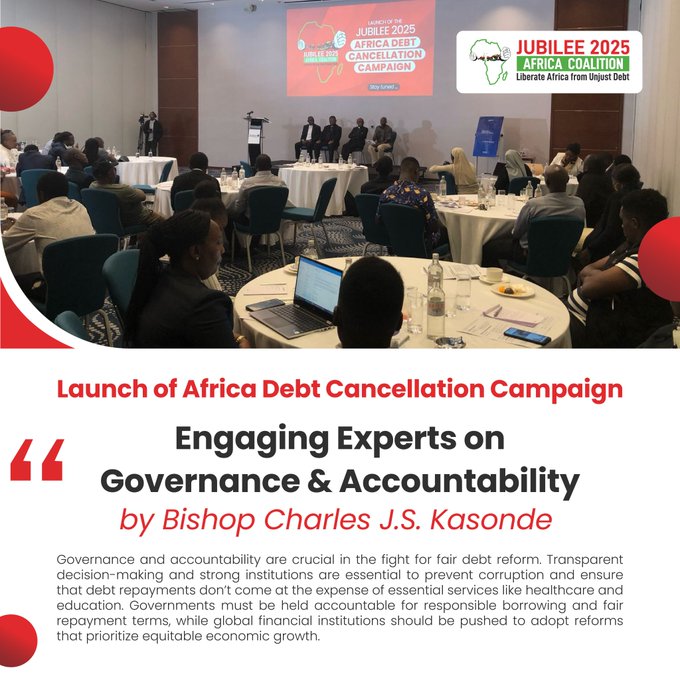NAIROBI, Kenya – The Catholic Church has set its sights on a major global financial reset.
Through its Jubilee 2025 campaign, the Church urges world leaders to cancel what it calls “unjust debts” burdening African nations.
This is meant to free up resources for essential services like health, education, and infrastructure, ultimately breaking the cycle of poverty.
The call for action isn’t just about numbers but human dignity, justice, and long-term economic stability.
And with over 22 African nations either in debt distress or at high risk, including Kenya, Ghana, and Zambia, the urgency has never been greater.
📢Experts weigh in on governance & accountability at the #Jubilee2025 Africa Debt Cancellation Campaign! Bishop Charles J.S. Kasonde stresses the need for transparency & responsible borrowing to ensure debt repayments don’t hinder essential services. #DebtJustice #LiberateAfrica
The Vatican-backed initiative is being championed by leading Catholic organizations, including the Association of Member Episcopal Conferences in Eastern Africa (AMECEA), Jesuit Justice and Ecology Network Africa (JENA), Caritas Africa, and the Symposium of Episcopal Conferences of Africa and Madagascar (SECAM).
Bishop Charles Sampa Kasonde, Chairman of AMECEA, framed Jubilee 2025 as a bold vision.
“Our goal is an Africa liberated from the constraints of unjust debt, thriving within a fair global financial system, and strengthened by ethical leadership and governance,” Kasonde stated.
The campaign draws inspiration from the Church’s 2009 Jubilee push, which helped secure a staggering $100 billion in debt relief for struggling African nations, including Uganda, Mozambique, and Tanzania. This time, the mission is even more urgent.
Let’s talk about reality: Countries across the continent are drowning in debt.
Governments are stuck in an impossible balancing act—either paying off loans or meeting their citizens’ basic needs.
The COVID-19 pandemic and ongoing global economic shocks have only made things worse.
With nations like Sudan, Zimbabwe, and Somalia already defaulting on debt payments, it’s clear that the system isn’t working.
The Catholic Church is clear: the time for half-measures is over. Debt relief isn’t just about freeing up government budgets—it’s about creating a fairer global financial system.
With the campaign gaining momentum, the question remains: Will world leaders listen?




